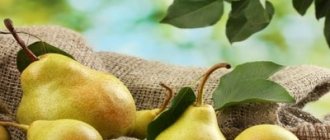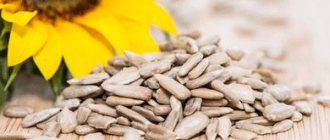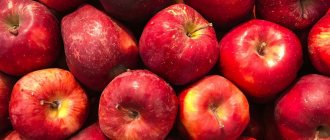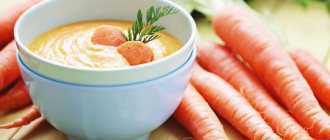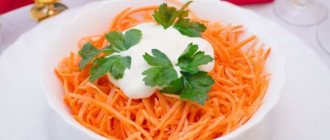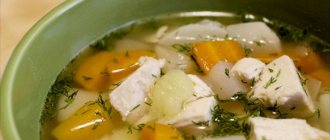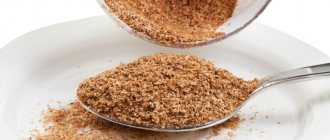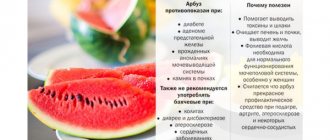A mandatory method of complex treatment of pancreatitis is a therapeutic diet. Against this background, other therapeutic measures are carried out. A properly organized diet normalizes metabolism, prevents the progression of the disease, relapses and possible complications. The list of permitted products is adjusted depending on the stage of the disease and the severity of symptoms.
Such a common and popular vegetable as carrots is beneficial for the pancreas and the body as a whole. It copes with digestive problems, saturates the body with micro- and macroelements, vitamins, cleanses the intestines, and supports the physiological functions of the gastrointestinal tract. From the article you will learn whether carrots are okay or not for pancreatitis, how they act on the pancreas, and what foods are recommended to eat during remission of the disease.
Chemical composition of carrots
Carrots have a low calorie content - 41 kcal raw and 35 kcal after heat treatment, contain virtually no fat (0.1 g), but are rich in healthy carbohydrates (6.9 g) and proteins (1.3 g).
The composition contains all the substances necessary for the human body:
- amino acids;
- alimentary fiber;
- organic acids;
- starch;
- macroelements - potassium, calcium, sodium, magnesium, silicon, sulfur, chlorine, phosphorus;
- trace elements - iron, cobalt, iodine, manganese, molybdenum, copper, selenium, fluorine, zinc, chromium.
Carrots are superior to other vegetables in terms of vitamin A content: 100 g - 240% of the daily value. It is also a valuable source of ascorbic and nicotinic acids, vitamins E, H, K. Orange fruits are valued for their content of B vitamins: thiamine, riboflavin, niacin, choline, pyridoxine, pantothenic acid, folate.
Nutritionists, if possible, advise including carrots in the diet of healthy people every day. It contains high concentrations of beta-carotene. This element performs a number of important functions:
- slows down the aging process;
- protects against influenza and upper respiratory tract infections;
- maintains the health and condition of the skin and mucous membranes;
- has a positive effect on redox processes;
- takes part in the metabolism of proteins, fats, carbohydrates;
- increases resistance to intestinal diseases;
- strengthens the immune system;
- supports normal metabolism;
- ensures proper functioning of the sebaceous and sweat glands;
- maintains healthy teeth and bones;
- Maintains eye hydration and protects against drying out.
Carrots prevent the development of cardiovascular diseases. B vitamins and ascorbic acid increase the density and elasticity of vascular walls and small capillaries, reduce the level of bad cholesterol, and regulate blood glucose levels.
Potassium and magnesium ensure proper functioning of the heart muscle, improve the conduction of nerve impulses, copper is involved in hematopoiesis, and selenium stimulates the formation of red blood cells. As a result, the risk of formation of atherosclerotic plaques is reduced, normal blood flow is maintained, and the development of ischemia, stroke, hypertension, and diabetes is prevented.
Carrot juice in the remission stage of chronic pancreatitis
During remission of the disease, patients may well appreciate the taste and medicinal qualities of carrot juice, but only if certain conditions are met:
- Gradual introduction. If you have already introduced fruit or berry juices into your menu and tolerate them well, you can start adding carrot juice to your diet. An important advantage of carrot juice is its good compatibility with other types of juices, which makes it possible to add it to the diet not in pure form, but diluted. For the first dose, it is recommended to drink a glass of carrot-apple juice in a ratio of 1:3. If well tolerated, the proportion of carrot juice can be increased.
- During the period of following a diet with mechanical sparing, the juice should be well strained from the pulp; subsequently, the use of carrot juice with pulp is allowed.
- Juice is contraindicated for diarrhea syndrome.
- You should not overuse carrot juice; drinking half a glass a day is enough, maximum one glass. It is not suitable for daily inclusion in the menu; the optimal frequency of use is 2-3 times a week.
Carrot juice must be drunk freshly to preserve all the beneficial substances. It is used in its pure form, mixed with other juices, and can be added to yogurt, milk porridge, and jelly.
Beneficial properties of carrots for the pancreas
It is difficult to overestimate the importance of carrots for the digestive system. Regular consumption of vegetables restores and supports the functioning of the pancreas. A sufficient amount of fiber promotes the active removal of various types of waste and toxins from the body, eliminates excess sugar, bad cholesterol and other harmful substances.
The role of carrots in restoring and maintaining water-electrolyte balance, improving digestion, and normalizing metabolism has been proven. The vegetable has an anti-inflammatory effect, protects mucous membranes from the influence of irritating factors, reduces the intensity of pain and other symptoms.
Taking carrot juice for pancreatitis
The question of whether to drink carrot juice for pancreatitis requires an answer. The diet of patients must include boiled root vegetables. Freshly squeezed juice, according to followers of a healthy lifestyle, is beneficial. The drink exhibits many positive properties, sweet and tasty.
Carrots are constantly used in salads, side dishes, main courses, soups, and desserts. People suffering from abnormalities in the functioning of the pancreas are not recommended to consume the listed dishes.
For diseases of the gland, the orange drink is drunk together with the potato drink: the juices are combined in equal quantities and taken 1.5 hours before meals. After use, you need to lie down for 30 minutes.
Carrots are used as a base for other drinks. Add juice from lettuce leaves and Brussels sprouts (1 part each) to 5 parts carrot juice. When you combine juices from carrots, Brussels sprouts, lettuce, and green beans, you get a megavitamin cocktail; drinking the drink enhances and restores the functioning of the pancreas. It is recommended to consume carrot juice in a state of remission; it will have to be introduced into the diet in small doses and gradually. The concentrate is beneficial for the immune system and the body, accelerating the patient’s recovery process.
There are known warnings when taking a drink made from carrots. Consumption depends on the stage of the disease.
Carrot juices and acute and chronic pancreatitis
During the acute stage, during the worsening of the chronic form of pancreatitis, treatment is carried out in a hospital, and the fight against the disease begins with fasting - any food is excluded. During this period, you cannot drink carrot juice drink due to possible consequences:
- A patient with pancreatitis is at risk of developing diabetes: insulin is needed to digest the juice, and the production of the enzyme is impaired due to inflammation in the gland.
Inflammation in the pancreas - Drinking carrot juice stimulates the secretion of enzymes. Increased production puts stress on the diseased organ, which is prescribed to be at rest.
- Raw carrots contain a lot of fiber. The substance is not digested by the body during pancreatitis, bloating, flatulence and pain occur.
A carrot drink is contraindicated at the described stage of the disease.
In the future, you must adhere to a strict diet. During the period of easing the exacerbation, it is allowed to eat boiled carrots and vegetable dishes: puree, soufflé, steamed cutlets. You should cook jelly, carrot and apple decoctions.
Carrot juice and pancreatitis in remission
During the period of remission, it is possible to consume fresh carrots, but the following conditions must be met:
- Introduce into food gradually. Initially, determine the body’s reaction to other fruits and berries. Before drinking pure orange root drink, drink partly in combination with apple drink in a 1:3 ratio.
- During the diet, you are allowed to drink fresh juice without pulp; the drink will have to be strained. With further adaptation of the body, strengthening of remission, it is permissible to consume it with pulp.
- If the general condition has improved, but there is prolonged diarrhea, the juice should not be taken.
- You need to consume the elixir from orange root vegetables in your diet 3 times a week. The norm per day is up to 200 milliliters, and you need to drink it freshly squeezed.
The orange drink is added to dairy products: cottage cheese, yogurt, porridge. Can be mixed with other fruits.
How do carrots affect the pancreas?
The beneficial properties of carrots for the pancreas are determined by the period of the disease. People at high risk of developing pancreatitis are recommended to consume the vegetable as a preventive measure.
During an exacerbation of pancreatitis
During the period of acute pancreatitis, with pronounced clinical signs, a strict diet is indicated. For the first 2-3 days, doctors recommend completely abstaining from food, drinking only still water, rosehip infusion, and herbal tea without sugar. This relieves the affected organ.
As soon as possible, the patient is transferred to a nutritious diet. Starting from 3-4 days, carrots, like other foods, are allowed to be eaten. They provide a gentle regime; the menu includes dishes with a semi-viscous, liquid and semi-liquid consistency. Carrots are boiled or baked, steam pudding, puree, soufflé, and cutlets are prepared.
During remission
During the period of remission, the patient is transferred to a complete balanced diet . The diet includes carrots and carrot juice. They are combined with grains, vegetables and fruits, pre-heat-treated, and consumed without oil or salt. Fried carrots, which have a high calorie content, are excluded from the menu.
Can I drink carrot juice? Yes, but it is better to mix it with other vegetable drinks. Start taking small doses - 100 ml, gradually increasing the portion to 400-500 ml per day or 200 ml at a time.
Reference . Excess carrots in the diet will cause bloating, increased gas, cramping, constipation and diarrhea.
Carrots for chronic pancreatitis
Chronic pancreatitis allows the consumption of thermally processed vegetables. Raw carrots are heavy on the stomach and take a long time to digest; boiled or stewed carrots are easier to digest. It has lower calorie content, but the content of phenols and antioxidants increases, which resist many diseases and ensure proper functioning of the digestive system.
This is interesting:
Is it possible to eat watermelon with cholecystitis and pancreatitis?
Is it possible to eat boiled corn if you have pancreatitis?
Is it possible or not to have carrot juice in the acute period of pancreatitis?
During an exacerbation of a chronic disease or during an attack of acute pancreatitis, carrot juice is strictly contraindicated. This is due to the peculiarities of its effect on the body:
- Carrots stimulate the active production of pancreatic juice and put additional stress on the pancreas, which is extremely undesirable during the period of illness, and treatment is aimed at relieving it as much as possible.
- Fiber, the processing of which is difficult during illness, is contained in carrots in large quantities, which provokes bloating and disruption of the gastrointestinal tract, bringing a lot of discomfort to a person.
- Carrots are rich in glucose and fructose, the breakdown of which involves insulin, and its production is often impaired during pancreatitis, so a lack of insulin when consuming large amounts of sugar can lead to the development of diabetes.
Possible harm and contraindications
Carrots are contraindicated for kidney and liver diseases, large stones in the urinary system, gastrointestinal pathologies in the acute stage, allergies.
A raw food diet creates an unusual load on the organs of the gastrointestinal tract, especially if there are chronic diseases. In people with allergies, the vegetable causes a skin rash, peeling, and itching.
Excess beta-carotene provokes exacerbation of symptoms of pancreatitis and cholelithiasis, vomiting and nausea, drowsiness, lethargy, and headache.

